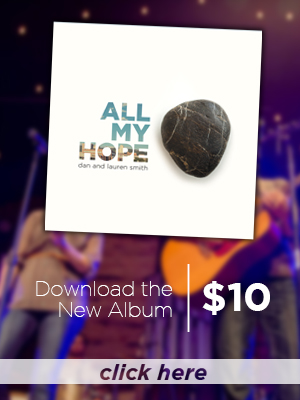Christian Music and the Player Haters
Posted by danadron on February 3, 2012 Blog | Uncategorized | | No commentsSome might disagree, but I’m speaking of music itself, not our unique individual perception of the art. For some, music is meaningless, for others it is everything. I’ve always thought of music as the language that connects our hearts and our minds. In that space is where our spirit lives and breathes and it’s where we find meaning. Music helps us communicate both the emotional and cognitive nature of who we are at the very root. It helps give us meaning and purpose and for me it’s the language that I, and generations throughout history, have used to sing praises to their creator.
“Christian” Music as a popular genre is a relatively new concept. Back in the 80’s and 90’s when Michael W. Smith, Amy Grant, Jars of Clay, Rich Mullens, etc. hit the mainstream – Christian Music as a popular genre was born. The suits, ties, and organ in the sanctuary were traded for sneakers, jeans, and electric guitars. Sunday morning music became contemporary rock and a whole new subculture of our greater American pop-culture emerged. It looked just like everything else but with religious undertones. The point was to attract a more secular audience by being more relevant stylistically. The hymns of centuries past were put aside for new lyrics written for today by today. The western church exploded and a whole new side of the music industry was born and has since become a power to be reckoned with.
Fast forward to today and there is a growing frustration with this “Christian” music and what it has transformed into. Derek Webb, a popular Christian singer/songwriter, has famously coined the phrase that, “Christian, when applied to anything other than a human being, is just a marketing term.” One of Derek’s frustrations deal specifically with semantics – when we define something with a word so culturally divisive as “Christian” – we actually do more damage than good. That’s what labels do – they lock people, things, and ideas into boxes that make it easier for us to compartmentalize. A lot of people, once they hear something is “Christian”, will turn and run the other way. Labels alienate – especially art – because it communicates something about the art that the artist may not have intended and creates cultural and ethical barriers that otherwise didn’t exist.
Personally, we have family and friends who love our music, but are more afraid to share it with their friends because it’s “Christian”. I don’t know if I blame them, it’s not their fault – our PC climate makes us think that sharing music that has Christian or religious undertones means potentially alienating an entire relationship.
What exactly makes music “Christian”? Is it the artist? The art? The record label association? Whether or not the artist is on “Christian” radio?
I would argue that what makes music “christian” is the heart of the artist.
Now let me explain why I’ve been feeling so annoyed lately.
I have begun to discover a disturbing trend amongst Christians, mostly worship leaders and pastors, who bash the current state of the Christian music scene. “There’s so much crap out there.” “It’s so unoriginal.” “It’s so mechanical.” “Where’s the heart?” “Stop trying to be the next Chris Tomlin or Matt Redman or Hillsong United.”
Now, to be fair, there’s definitely plenty of people out there gaming the industry to make a buck, get famous, and make a living. But I would argue that there is a far greater majority of musicians creating “Christian” music in all earnestness with integrity, passion, and conviction. So much so, that I very seriously question the heart of the critics more than the heart of the songwriters.
If we believe that music is a deeply personal language of the soul, and that what makes music “Christian” is the heart of the artist, then who are we to judge the originality, quality, and perfection of the art? It is not ours to judge? Whether or not their song sounds like another 1,4,6,5 progression and the melody is eerily reminiscent of a Tomlin or Hillsong tune – they are discovering a melody in their hearts and minds and pouring it out in a spiritual tongue as a gift of praise to their maker. We miss the point when we call something counterfeit when it is not our heart we’re sharing, but it is the heart of the artist. You may not like it, but it’s an offering of praise that means something to the artist and it very well could be used by God to deeply communicate His truth into someone’s life.
Not everyone has the motives we conveniently enjoy projecting on others. Not everyone who writes music is trying to be the next Chris Tomlin or Matt Redman. I do not know the heart of another man so who am I to judge? I hear complaints of lyrics lacking originality and the same “watered down” phrases being used and overused. Yes, we should strive to convey the truths of the gospel in new and relevant ways but sometimes there is no other way to say it then, “God, there is no one like you.” Yes originality is crucial – sing a new song to the Lord – the word declares. BUT, don’t let a lack of “originality” in style that others don’t think you have inhibit you from singing your song to the Lord – because your song IS a new song.
I challenge you Pharisaical critics out there. You do not know the heart of a man (1 corinthians 2:11). The issue is not in the heart of the artist but in the heart of his critics. I pray your heart be melted the next time you turn on the radio and hear the same old “watered down” lyrics, melodies, and chord progressions or when you hear an independent musician sharing his heart and his song. It may not be a new idea or a clever way of communicating Truth, but it is His Truth – and that is always something worth singing about.



